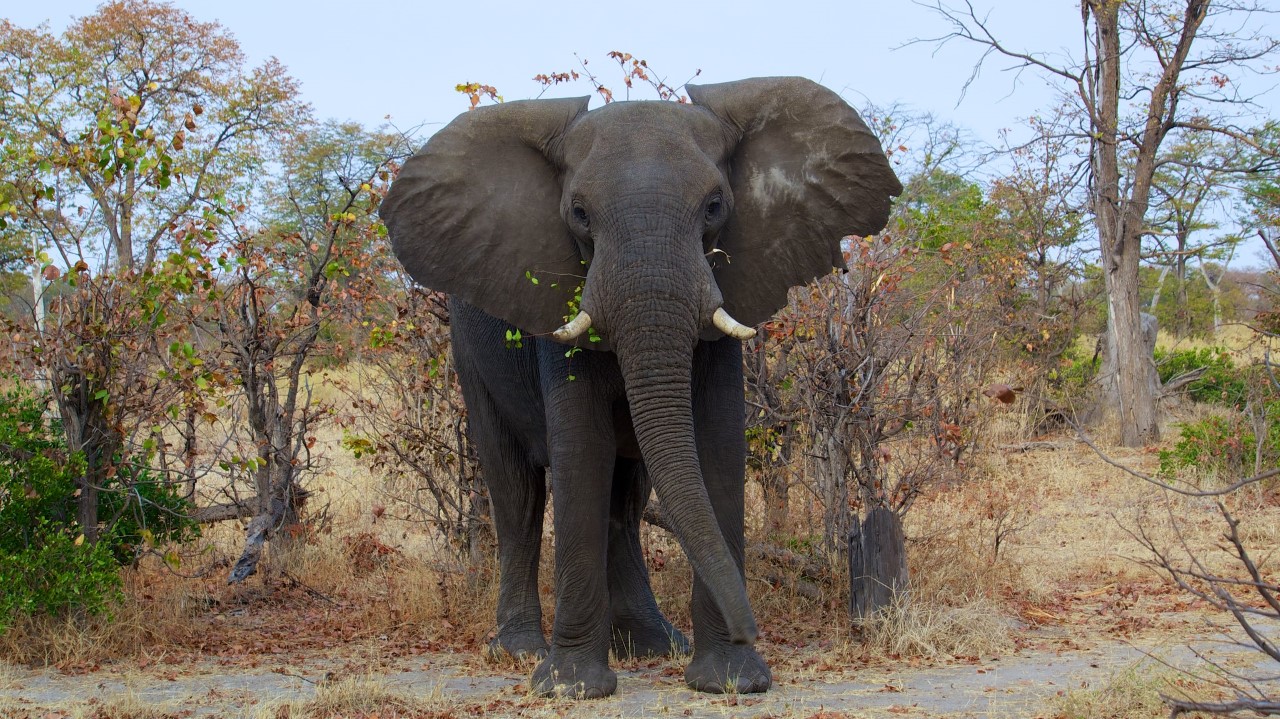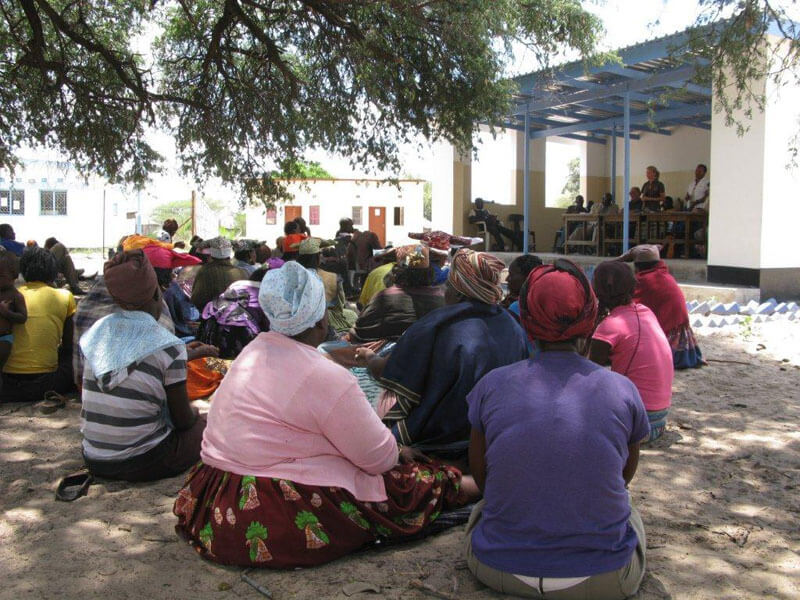Groundbreaking Workshop on AI and Technology-Facilitated Gender-Based Violence at AWiM24
Trending
Saturday May 10, 2025
Trending

Gaborone
It’s a hot sunny day in the village of Habu, situated between Shakawe and Okavango, the biggest tourist attraction of Botswana, and Theresa Sethelo makes her way towards the settlement, balancing a bunch of firewood on her head. She has draped the wood with an old cloth and she gestures to pull it tighter, as her other hand reaches to the back to re-adjust the one holding her small baby to her back. The baby is half-asleep and moves slightly when he feels his mother’s warm touch. Theresa is exhausted but she wants to make it home before dusk to make a fire to boil water for a bath and make dinner.
The Government of Botswana has recently put in place strict regulations to thwart tree cutting in the area against the backdrop of possible deforestation. Theresa points out that they have no electricity connection in the area, solar power is still an expensive luxury, and with no jobs, they cannot afford to buy paraffin for domestic use. Theresa has for a few years now, tried to eke a living by selling firewood and through farming agricultural produce and selling the surplus. She says it is tough because the farming season is sporadic and the impacts of climate change have negatively affected the produce. “The rains are few and wide apart. Sometimes when we do farm something good, wild animals come and destroy our crops. We have a problem with animals such as elephants coming here to destroy our crops when they are in search of food and water,” she said.
In the past few years, there have been many incidents of animal attacks in the area, particularly on elephants, which have resulted in a total of 46 deaths. In events in which wild animals destroy crop farms and homesteads, Government often steps in to compensate the victims.
But with the growing elephant population, Botswana has been forced to devise and implement the National Elephant Plan, which is geared at finding strategies to mitigate the impacts of animal intrusion in wildlife sensitive areas.
The United Nations (UN) Intergovernmental Panel on Climate Change Working Group II report, dubbed Climate Change 2022: Impacts, Adaptation and Vulnerability, released in March 2022, indicates that sub-Saharan Africa has experienced reduced maize and wheat yields due to climate change and that climate change has reduced agricultural productivity by more than a third since 1961.
The report emphasises that climate change is projected to push 39 million Africans into extreme poverty by 2030, under a baseline of delayed and non-inclusive economic growth – with food prices acting as the dominant channel of impact.
The report indicates that global warming above 2 degrees will result in yield reductions for staple crops across Africa, and that future warming will negatively affect food systems by shortening growing seasons.

This is reiterated by Kgomotso Sekolo, who says that she has been frustrated by her thwarted efforts to farm in the area. “Nowadays the seasons are unpredictable and there is little rain. I cannot afford to dig a borehole. Also, when we do grow something, the elephants come and trample the fence and destroy the little that we managed to plough,” she said.
This of course has had negative impacts on the opportunities that the residents of the settlements have to make a living because many of them have relied on farming for a long time.
Says Matilda Kegoditse: “We were raised to be farmers and have always been growing our food and selling the surplus. Climate change has brought challenges that we are not familiar with, forcing us to adapt to changing seasons and consider shifting what we plough. It is not easy and it has affected our standard of living.”
The Covid-19 pandemic has worsened the situation for the people in the areas. When launching the Economic Recovery Plan post Covid-19 last year, President Mokgweetsi Masisi noted that people and eco-systems were the ones hardest hit during this period and resuscitating the tourism industry, which is the biggest sector of the country, was one way to ensure that livelihoods are restored, adding that sustainable tourism is at the core of Botswana’s plans to revive tourism and improve on its conservation models to ensure that it maintains the country’s pristine natural flora and fauna.
“The impacts of the Covid-19 pandemic worsened gender inequality within communities, increasing vulnerabilities to climate change impacts because of the shift in priorities said President Mokgweetsi Masisi adding that gender empowerment, particularly of women in rural and semi-rural communities remains a key aspect that Government wants to invest in.
“Government has committed to developing capacities of institutions, particularly in tourism and conservation-focused communities, to help them implement adaption and poverty reduction models,” the President said.
Africa Green Stimulus Programme and African Union Green Recovery Action Plan acknowledge the ravaging impacts of Covid19 and make recommendations for sustainable recovery, which the Government of Botswana has taken into consideration. This also falls within the framework of the African Ministerial Conference on the Environment, whose mandate is for environment protection and ensuring that basic human needs are met adequately and that the economic and social development in communities is met and realised through agriculture activities and other sustainable conservation practices.
The Government of Botswana, through the Ministry of Tourism and Environmental Protection, has reiterated the need to improve climate resilience going forward and working with communities was one way to do this. The Ministry head Philda Kereng recently told the media that finding a holistic approach is the way forward. “We are working on community models that consider protecting biodiversity, natural eco-systems and human communities, through zoning in on their vulnerabilities and capacities and helping them find sustainable means to adapt to climate change.”
A model successful initiative is in Habu, a small village near the Okavango Delta, which is Botswana’s and perhaps even one of Africa’s biggest tourist attractions. The area has a high wildlife presence and the largest elephant population in Africa and the world. However, there have been challenges of human-wildlife conflict, and fear of eroding natural eco-systems on account of tourism.
Stakeholders have worked with community members to carry out eco-friendly, sustainable tourism projects that are geared at creating a seamless co-existence environment and ensuring that locals can find means to eke a decent living, against the backdrop of worsening climate change impacts.
Mr Mogadi Masedi, the Director and Project Coordinator of Habu Elephant Development Trusthttps://www.bpctrust.org/who-are-the-habu-community-scouts/ (HEDT), said many communities in the north-west of Botswana have felt the impacts of climate change, which has not only threatened livelihoods but also the protection of natural resources and wildlife is situated in Ngamiland, between Shakawe and the Okavango Delta, Botswana’s biggest tourism area.
Mr Masedi explained that HEDT was established to devise sustainable means to avert the negative impacts of climate change and ensure that sustainable development continues. The rainfalls have recharged groundwater systems, and they are taking this opportunity to utilise the groundwater reserves.
Since they started the project three years ago, they have drilled six boreholes. The boreholes were sponsored by the National Environment Fund.
“One borehole is for wildlife, another for a youth vegetable garden and the others are used for farmers’ cattle. We also came up with a grazing management system, through which they use the means of a devised system of rotational grazing and production of fodder, by cutting the encroached bush into chippers to produce animal feed.”
“At the heart of our operations is to protect ecosystems of both animals and people living in Okavango areas, and engender an understanding of the value of sustainable environmental management within the Habu area community. We also wanted to generate community-owned and operated ventures that take advantage of available wildlife-based industries focused on sustainable natural resource utilisation.”
Mr Masedi said their first project started in 2017, securing two million Pula (£130,000) from the Paul Allen Foundation to establish a Habu community drinking water development. In 2018, they were approved for wildlife and cattle water development and were awarded a 2.5 million Pula (£163,000) grant. They have also established three boreholes, partnered with Botswana Predator Conservation Trust and secured an additional three million Pula ($249,875.64) in funding.
He further said that some of the achievements registered since spearheading this initiative include increasing the prevalence of wildlife, under the wildlife management area; recovery of government trophies (tusks), herding for health, as well a reduction in poaching and incidents of human-wildlife conflict.
Despite these efforts, more still needs to be done to integrate women and girls into the sustainable conservation model and help to alleviate poverty in the area. Some stakeholders are trying but need broader support. Wilderness Safaris, for example, has a programme where young girls in schools are taken on campus to learn more about science and conservation, “with the hope that more girls will be interested in pursuing courses in science and environmental protection.”
Funding and training remain a challenge for women and girls in the area, and if both are in place, it would be one step towards capacitating women and girls to self-run sustainable social enterprises that will protect the environment and render them opportunities to make living but also co-exist and protect their environment for the benefit of future generations.
This article is part of African Women in Media (AWiM)/UNEP Africa Environmental Journalism Programme
Do you want to publish this article? Kindly contact janet@africanwomeninmedia.com
We’re not gonna spam. We’ll try at least.

Copyright 2020. African Women In Media
Copyright 2020. African Women In Media
Recent Comments